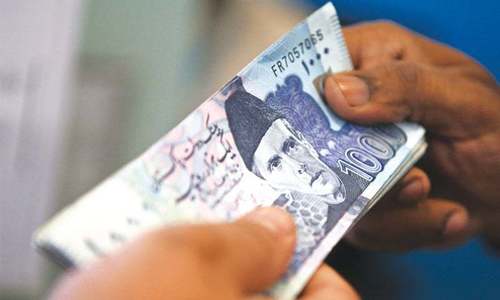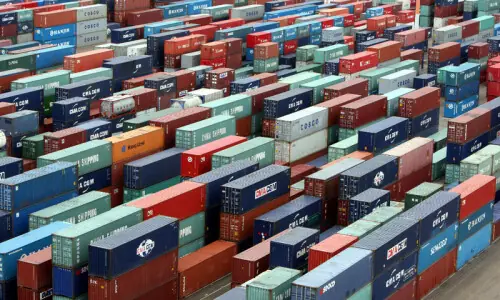
Financial inclusion is the measure of the proportion of individuals and firms that use financial services. It includes not only a bank account but also access to formal financing.
In developing countries, financial inclusion helps reduce income inequality and boost inclusive economic growth. It provides the formal banking segment with a broader way to reach the underprivileged people who are currently excluded from formal banking channels owing to reasons like financial incapability, illiteracy, geographical inconvenience and religious concerns.
Access to finance is a prerequisite for the equitable distribution of economic opportunities, poverty reduction and financial stability. In Pakistan, the level of financial inclusion was one of the lowest in the world until 2015. Only 16 per cent of the adult population had an active bank account. The account ownership was even lower for women (11pc). Similarly, financing to priority sectors like agriculture, small and medium enterprises (SMEs) and low-cost housing remained extremely low. A large part of the faith-sensitive population remained voluntarily excluded from the banking network.
In 2017, one in five adults in Pakistan (21pc) reported using a full-service financial institution, up from 16pc in 2016, according to Financial Inclusion Insight by Bill & Malinda Gates Foundation. About 13pc of adults accessed mobile money, 11pc accessed banks and 2pc used non-bank financial institutions.
According to a study on Islamic banking titled Knowledge, Attitude & Practices that the State Bank of Pakistan (SBP) conducted with support from the UK Department for International Development, there is overwhelming demand for Islamic banking and finance in Pakistan. Keeping that in view, it can be said there is a huge potential for such products and services in the country. A significant portion of this demand lies amongst those who are still financially excluded.
Almost 75pc of the population with banking relationships expressed a desire to shift to Sharia-compliant banking while 93pc of non-banked respondents believed interest is forbidden for Muslims
Almost 75pc of the population with banking relationships expressed a desire to shift to Islamic banking while 93pc of non-banked respondents considered bank interest prohibited in Islam. They said it was their chief reason for staying away from the financial sector.
Under the National Financial Inclusion Strategy (NFIS), Pakistan is aiming to make 50pc of its adult population financially included by 2020. The NFIS lays out the national vision, framework, action plan and targets for financial inclusion. Its objective is to achieve inclusive economic growth through enhanced access to finance and deposit base, promotion of SMEs, easy and affordable access to finance to farmers, low-cost housing finance and banking solutions. However, any success will depend on its effective implementation in view of ground realities and cultural and social norms.
The SBP has continued to prioritise financial inclusion as a key element of its development programme. The NFIS 2015, supported by the World Bank, has provided a road map for financial inclusion. As a result, following steps have been taken:
• In April 2017, the government launched a $130 million financial inclusion and infrastructure project focused on improving access to digital payment and advancing access to credit for SMEs.
• The SBP has issued branchless banking regulations to promote easy account opening.
• The Asaan remittance account was launched in 2017 to promote remittances.
• The SBP is also planning to launch the Asaan mobile account.
• Pakistan Post and Karandaaz are partnering to digitise the former’s money order services.
A successful experience Islamic banking gained momentum in Pakistan after its re-launch in 2002 with impressive growth and wider acceptance from the public.
In June 2019, the market share of Islamic banking institutions stood at 16pc in terms of deposits. It is expected to grow to 25pc by 2023. The industry consists of 22 Islamic banking institutions, including five fully fledged Islamic banks and 17 conventional banks having Islamic banking operations.
The consumer segment has also shown its preference for Sharia-compliant financing. Currently, the share of Islamic housing finance is over 52.5pc. Similarly, owing to a strong push from retail investors, the share of Islamic mutual funds has already reached 37pc of the total market size. Islamic voluntary pension funds enjoy 64pc of the market share.
Policymakers need to give due importance to Islamic banking and finance, which will serve as a catalyst for improving access to finance. It is time the regulator, relevant government institutions and the NFIS Secretariat developed products and policies that not only enabled the ordinary folk to become part of the formal financial services network but also respected religious beliefs of the masses.
It is important that the government’s financial schemes like Kamyab Jawan loan programme and Naya Pakistan housing programme should be based on Islamic principles. The adoption of Sharia-compliant banking solutions will attract people to the financial sector.
Mr Siddiqui is director of Centre for Excellence in Islamic Finance (CEIF) at IBA Karachi. Mr Junaid is a research associate at CEIF-IBA Karachi
Published in Dawn, The Business and Finance Weekly, February 17th, 2020






























